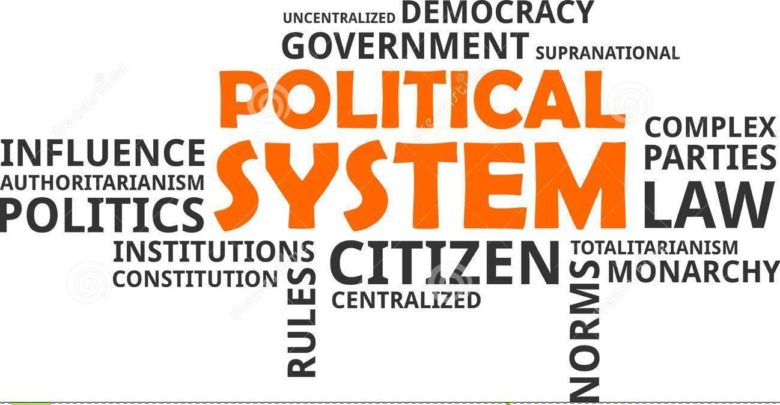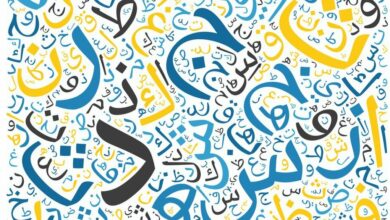مظاهر التجريد السياسي في نظام المعرفة الإسلامي النقل والعقل (الجزء الأول: النقل)
Manifestations of political abstraction in the Islamic knowledge system Transport and mind -Part One: Transportation

اعداد : د. محمد السباعي /باحث في القانون الدستوري والعلوم السياسية / جامعة القاضي عياض مراكش)
المركز الديمقراطي العربي : –
- مجلة قضايا التطرف والجماعات المسلحة : العدد التاسع تشرين الثاني – نوفمبر 2022 , مجلد3 , دورية علمية محكمة تصدر عن #المركز_الديمقراطي_العربي “ألمانيا –برلين” .
-
تعنى بنشر دراسات وأبحاث حول قضايا التطرف والإيديولوجيات المتطرفة والجماعات المسلحة في مختلف مناطق العالم. تهتم المجلة بتحليل وتفسير تنامي التطرف والجماعات المتشددة – بغض النظر عن خلفياتها – التي تعتمد على العنف المسلح كأسلوب في نشاطها وتحقيق غاياتها. وتهتم المجلة كذلك بالتيارات السياسية المتطرفة التي تشارك في العملية السياسية ولا تستخدم العنف المسلح، لكنها تتبنى خطابا شعبويا أو إقصائيا أو عنصريا بهدف الوصول إلى السلطة.
للأطلاع على البحث “pdf” من خلال الرابط المرفق :-
ملخص:
لقد عمل فقهاء السلف على ترسيخ مناهج خاصة في التعامل مع النصوص حيث انطلقوا من الخطاب الشرعي إلى العناصر المكونة له، ومن ثم التعامل مع معطيات الواقع وفق تصور خاص يبنى في أساسه على التكاليف الشرعية لتكتمل الصورة الأصولية في خطاب أقل ما يقال عنه أنه اختلطت فيه نصوص الوحي باجتهادات الفقهاء فأصبح الإلزام لا يقتصر على القرآن والسنة الصحيحة، بل أضيف إليهما الإجماع والقياس الفقهيين.
وعليه، ماهي المعطيات الواقعية المحددة لهذا التكليف الشرعي الجديد؟ وهل أمكن الحديث عن مشهد سياسي دون نظر فقهي في صياغة وحياكة خيوطه؟
للإجابة عن هكذا سؤال كان علينا الوقوف في هذه المقالة على أقوال الفقهاء واجتهاداتهم وخاصة الأئمة منهم، وكيف صارت هذه الأقوال والاجتهادات مجالا للشرح والتفسير والاستنباط والتعليل، أي مجالا لتوليد النصوص، ومضاهية في الآن نفسه حكم الأصل الذي هو القرآن لحساب حكم الفرع من خلال إنتاج دائرة الشروح وشروح المتون في الحواشي.
أخذت نظرية الخلافة الحظ الأوفر من هذا الإسهاب لكن لا لتطويرها كما تطورت مؤسسة السلطة بفعل عوامل زمنية تفاعل فيها الداخلي بالخارجي بل لتكريس مطلب “النموذج المثال” المجسد في الخلافة الراشدة برؤيا فقهية مكرسة لمجموعة مبادئ متواضع عليها تم إقرارها بتدرج زمني وتحت مبرر “الضرورة” لتشكل خطابا هو في محصلته النهائية نتاج سياسي لا أقل ولا أكثر. وربما لا معنى فيه أيضا لشعارات رفعت منذ زمن من قبيل “الحكم بما انزل الله” و “أن لا حكم إلا لله” و “أن الخلافة على منهاج النبوة”…الخ.
إذن، كيف استطاعت المنظومة الفقه سلفية أن تخلق لنفسها صورة أضحت ناطقة باسم الشرعية الحقة – المجسدة في تيار أهل السنة والجماعة – وضابطة لتصورها عن شكل نظام الحكم في الإسلام؟
ولأن الضابط هو المنهج العقلي المعتمد على منتوج معرفي ما، فإن ذلك دعانا في هذا العمل إلى مساءلة العقل الفقهي عن ملامح التفكير لديه من خلال الوقوف على محصلة العلاقة بين ما هو عقلي وما هو نقلي؟
Abstract
The jurists of the Salaf worked to establish special approaches in dealing with texts, as they proceeded from the legal discourse to its constituent elements, and those who dealt with the facts of reality according to a special conception based on the legal costs to complete the fundamentalist picture in a discourse that is least said to be mixed with texts Revelation is based on the jurisprudence of the jurists, so the obligation is not limited to the Qur’an and the authentic Sunnah, but to them is added jurisprudence and analogy.
Accordingly, what are the actual specifics of this new legal mandate? Is it possible to talk about a political scene without a jurisprudential consideration of the formulation and weaving of its threads?
Accordingly, what are the actual specifics of this new legal mandate? Is it possible to talk about a political scene without a jurisprudential consideration of the formulation and weaving of its threads?
To answer such a question, we had to look in this article at the sayings and interpretations of the jurists, especially the imams among them, and how these sayings and interpretations became a field for an explanation, interpretation, deduction, and reasoning, i.e. a field for the generation of texts, and at the same time matching the rule of the original which is the Qur’an to calculate the rule of the branch through the production of a circle Annotations and annotations Alton in the footnotes.
The theory of the Caliphate took the most luck from this elaboration, but not to develop it as the institution of power developed due to temporal factors in which the inner and the outer interacted, but rather to devote the demand of the “exemplary model” embodied in the Rightly-Guided Caliphate with a jurisprudential vision devoted to a set of modest principles upon which it was approved in a temporal gradual and under the justification of “necessity” to form A discourse that is, in the end, a political product, no less or more. It may also have no meaning in it for slogans that were raised a long time ago, such as “ruling by what God has revealed”, “there is no rule except for God” and “the caliphate is on the method of prophecy”…etc.
So, how was the Salafi jurisprudence system able to create for itself an image that became a spokesperson for true legitimacy – embodied in the current of Ahlus-Sunnah wal-Jama’ah – and a controlling for its conception of the form of governance in Islam?
And because the controller is the rational method based on a certain cognitive product, this called us in this work to question the jurisprudential mind about the features of its thinking by standing on the outcome of the relationship between what is rational and what is transmitted.




